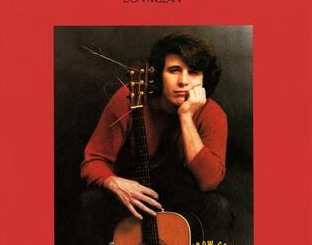Vincent by Don McLean Lyrics Meaning – Unraveling the Poetic Tapestry of Art and Sorrow
Lyrics
Paint your palette blue and grey
Look out on a summer’s day
With eyes that know the darkness in my soul
Shadows on the hills
Sketch the trees and the daffodils
Catch the breeze and the winter chills
In colors on the snowy linen land
Now I understand
What you tried to say to me
And how you suffered for your sanity
And how you tried to set them free
They would not listen, they did not know how
Perhaps they’ll listen now
Starry, starry night
Flaming flowers that brightly blaze
Swirling clouds in violet haze
Reflect in Vincent’s eyes of china blue
Colors changing hue
Morning fields of amber grain
Weathered faces lined in pain
Are soothed beneath the artist’s loving hand
Now I understand
What you tried to say to me
And how you suffered for your sanity
And how you tried to set them free
They would not listen, they did not know how
Perhaps they’ll listen now
For they could not love you
But still your love was true
And when no hope was left in sight
On that starry, starry night
You took your life, as lovers often do
But I could have told you, Vincent
This world was never meant for one
As beautiful as you
Starry, starry night
Portraits hung in empty halls
Frameless heads on nameless walls
With eyes that watch the world and can’t forget
Like the strangers that you’ve met
The ragged men in ragged clothes
A silver thorn, a bloody rose
Lie crushed and broken on the virgin snow
Now I think I know
What you tried to say to me
And how you suffered for your sanity
And how you tried to set them free
They would not listen, they’re not listening still
Perhaps they never will
In the rich tapestry of modern music, few songs paint as vivid a picture as Don McLean’s ‘Vincent’. This aching ballad has captured hearts since its release in 1971, transcending the echoes of the vinyl era to resonate with new generations. Etched with the colors of Vincent van Gogh’s palette, the lyrics blend a melancholic beauty with an insightful tribute to the tormented artist.
Moving beyond mere interpretation, ‘Vincent’ offers a window into the soul of van Gogh, underscoring his yearning for understanding and his struggle with mental illness. McLean’s tender portrayal delves deep into empathy, crafting a legacy in song that aligns with van Gogh’s legacy in art. But what further secrets does this masterpiece hold? Let’s uncover the layers of this timeless ode to an artist who changed the way we see the world.
The Starry Night’s Emotional Canvas
From the opening lines, it’s clear that McLean is setting the scene using van Gogh’s most famous work, ‘The Starry Night’, as a metaphorical backdrop. ‘Paint your palette blue and grey’ he murmurs, immersing the listener into the painter’s world, both physical and emotional. The blue of sorrow and the grey of turmoil, speckled with moments that reflect glimpses of hope and beauty—the song captures the contrast of the inner and outer landscapes that van Gogh experienced.
McLean’s nuanced understanding manifests in the lyrics’ ability to articulate what van Gogh himself might not have been able to say in words—the loneliness and struggle embedded in the strokes of his paintings. As if the music undertakes the daunting task of converting visual masterpieces into an acoustic form, ‘Vincent’ becomes a synesthetic experience for the listener.
Echoes of Van Gogh’s Fervent Plea
The chorus ‘Now I understand what you tried to say to me’ is a heart-wrenching acknowledgment from McLean, implying a belated comprehension of van Gogh’s silent messages through his art. It’s a universal cry for empathy, a yearning for acceptance that many artists and misunderstood individuals share. McLean’s lyrics suggest that the pain of being unseen, and unheard, is a common thread that can stretch out and entwine with the listener’s own experience of isolation.
By aligning himself with Vincent, and by extension, the audience, McLean sets up a shared space wherein collective catharsis is possible. It’s as if McLean is saying, ‘I’ve been there too, and it’s okay’. This chorus becomes a gentle hand on the shoulder of anyone who has ever felt that their voice has gone unheeded—an assurance that perhaps now, in this moment of shared song, they are finally understood.
The Tragic Romance of Starry Nights and Lost Souls
In perhaps the song’s most poignant passage, McLean sings of Vincent’s ultimate act of despair: ‘You took your life, as lovers often do’. This line blurs the boundary between love and pain, highlighting the destructive relationship between the artist and his passions. Van Gogh’s love for his craft and his need for connection were both pure, yet tragically unrequited. The world was not ready for an artist ‘as beautiful as you’.
McLean’s tender delivery embodies a raw, almost romantic notion of the misunderstood genius. But it’s far from glorifying the tragedy; instead, it serves a stark reminder of the societal pressures that can drive one to the edge. The message is double-edged, warning of the potential peril in unmatched passion while simultaneously honoring the deep beauty it can create.
Portraits of Pain: A Legacy Cemented in Solitude
The final verse paints an image of quiet despondence, with ‘portraits hung in empty halls’ and ‘frameless heads on nameless walls’. This imagery encapsulates the solitude of van Gogh’s existence and the seeming indifference of the world to his presence. But in this desolate landscape, McLean perceives a profound perception, ‘with eyes that watch the world and can’t forget’.
Therein lies the twist; van Gogh, through his enduring art, has in fact become an eternal observer, never to be forgotten. McLean acknowledges this with a begrudging admiration, hinting at the immortality of art that outlives the brief spark of human life. In crafting these images, ‘Vincent’ reminds us that in our moments of deepest despair, we might be unwittingly sowing the seeds of an everlasting legacy.
The Song’s Hidden Conversation with Eternity
Beyond the evident narrative of van Gogh’s struggles and the iconic scenes his brush created, ‘Vincent’ touches on the temporal dialogue that art creates—spanning across centuries, McLean’s lyrics become a conversation with eternity. The haunting refrain ‘perhaps they’ll listen now’ speaks to the enduring hope that time will heal misunderstandings and that art will eventually find its appreciative audience.
It’s this dialogue with the permanent, with the essence of humanity, that elevates ‘Vincent’ to a realm beyond just a song. It becomes a soliloquy that transcends its subject, asking listeners to look inward at their own misconceptions and to the future for redemption. McLean’s ballad is an eternal whisper in the hall of human experience—poignant, sorrowful, but not without a glint of hope.








